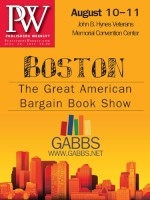For all the headlines garnered by dismal budgets, the supposed end of reference, and the e-books publishers don't want to sell to public libraries, independent publisher Rowman & Littlefield offers a more refreshing perspective on the library market: that the roughly 17,000 public libraries in the U.S. represent an enormous opportunity.
One of the largest independent publishers and distributors in North America, R&L Publishing Group, is expanding its efforts to publish more titles for public libraries. "Historically, we're an academic publisher, and we've really focused on college and university libraries," says Linda May, v-p, marketing and sales for RLPG. But just over two years ago, May says, she brought an idea to CEO Jed Lyons: why not put together a catalogue of titles for public libraries? Over the past two years, what began with scouring the backlist for titles that could work in public libraries has matured into a full-fledged publishing focus.
In that time, publisher and editorial director Marcus Boggs has brought on an editor to oversee books for the public library market, and assembled a library advisory board to guide acquisitions.
"Health, mental health, sexuality, biography, history, current events," says Boggs, "these are the kinds of subjects that resonate most, and where we have well-positioned authors. We don't do gardening, we don't do cookbooks or business books. We build from our traditional, core academic strengths, with well-credentialed, well-placed authors who can write about their topics for general interest circulation."
R&L is drawing from a deep well. The company publishes around 1,500 titles annually, from over a dozen imprints, along with copublishers and other professional partners that include the Smithsonian and the World Bank. And while the company continues to focus on publishing high-quality academic works, Boggs says there is a natural opportunity to help fill the demand for solid, vetted, subject-specific sources that librarians and the public can trust.
Librarians, Boggs adds, have played a key role in in the program. The library advisory board has grown from five to 12 members, now representing library systems in every region of the country. A library-focused project can't move forward without being reviewed by the board, May adds, and librarian input helps decide how a book will be published.
"Our relationships with the library community are deep-seated and critical to our program," CEO Jed Lyons tells PW, noting that three past publishers of the respected Scarecrow Press, which became part of R&L in 1995, have served as ALA presidents. "Libraries in the U.S. have done a superb job maintaining their collections despite funding cuts," he adds, "and public libraries are doing an excellent job of providing patrons with useful information about everyday living." That's a mission R&L is now geared to support; Boggs says a new series on food culture around the world is in the works for the Alta Mira imprint, for example, along with new editions for a series on professions (including librarianship). Lyons points to the success of Scarecrow's 20-plus– volume series It Happened to Me, which includes books for adolescents on everything from bipolar disorder and panic attacks to diabetes and drug abuse. "Libraries have been very supportive of these kinds of books," Lyons says, "books that seek to help people understand medical, emotional, and psychological challenges in their lives. And like all our books over the past two years, they are published simultaneously in paper and e-book editions."
So much for the perception that the library reference market is over. While Boggs agrees that some of the more topical reference questions may very well be answered by sources like Wikipedia, the need for trusted resources in the Internet age, on a range of subjects, is critical. "If anything, I think this is a golden age for reference," Boggs says. "But you can't do it the old way, because of the surfeit of information." Publishers can no longer put out any old three-volume set and expect libraries to buy it, he explains. But the recipe for success is simple: "You have to be extremely good," Boggs says. "And better than the competition."



 Volume 258
Issue 25
06/20/2011
Volume 258
Issue 25
06/20/2011





